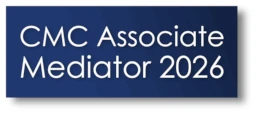Mediation takes a different approach to resolving conflicts at work compared with a formal complaint or grievance. Mediation focuses more on identifying what's mutually important to the parties and reconciling working relationships, instead of deciding who is right or wrong.

The main problem with grievances is that it's asking for a decision on a formal complaint. Once an investigation has been carried out, a decision will then be made on whether or not to uphold the complaint. Whichever way that decision goes, someone comes away unhappy.

If the complaint is not upheld, the person raising the grievance is likely to feel disappointed and disgruntled. There's a risk that they may interpret the decision as unfair, or that the company has "closed ranks" in defence against the complaint.
If the complaint is upheld, then the party against whom the complaint was made might feel that the decision was unfair, or that the person raising the complaint has got a grudge against them.
Either way, you end up with a lingering issue. The working relationship between the two parties is going to be very difficult as a result of the grievance. If you don't have the scope to fairly separate them, so that they don't have to work together, then there's a high probability of further conflict in future.
Mediation is a different approach to conflict resolution. Instead of trying to decide who is right or wrong, the focus is on helping the parties understand what is important to each other, address any misconceptions and resolve their differences. This dialogue also gives them an opportunity to reconcile their working relationships.

We are qualified workplace mediators, recognised by the Civil Mediation Council (CMC). We are authorised to carry out mediations for employers that meet the CMC standard.
Instead of the typical win-lose outcome from a grievance, a successful mediation will result in a win-win, with all the parties satisfied by a mutually agreeable outcome.
Here's an overview of how our mediation process works...
Our mediation is normally carried out at your premises in three meeting rooms. If this is not possible, we can arrange external, hired facilities* or potentially carry out the mediation online. We strongly recommend in-person sessions.
Cost illustration: one day mediation between 2 persons = £1,536 + VAT, based on:
Note: a 50% fee will apply if cancelling or rescheduling the mediation day with less than 48 hours' notice.
* Travel, accommodation and any external hired facilities will be charged at cost.
An effective mediation can, and usually will, take an entire day. After all, if there was a swift and easy route to resolution, the conflict would probably have been resolved already.
The persons taking part in the mediation should expect to spend a full day in the process, and plan their schedules accordingly.
This is still quicker than a grievance which, in our experience, can easily take 20+ man hours for the investigator to carry out the investigation and deliver an outcome.
On top of this, you also have to factor in the time spent by any stakeholders being interviewed as part of the grievance investigation. There are no witness interviews in a mediation!
A mediation therefore represents a cost saving over a full grievance investigation, plus you're more likely to get the parties to a mutually agreed outcome.
If you have someone raising a formal complaint at work, it is always worth asking the persons involved if they would be open to mediation.
Contact us to find out more, or to discuss a current situation where you think mediation may help...
Contact Us




